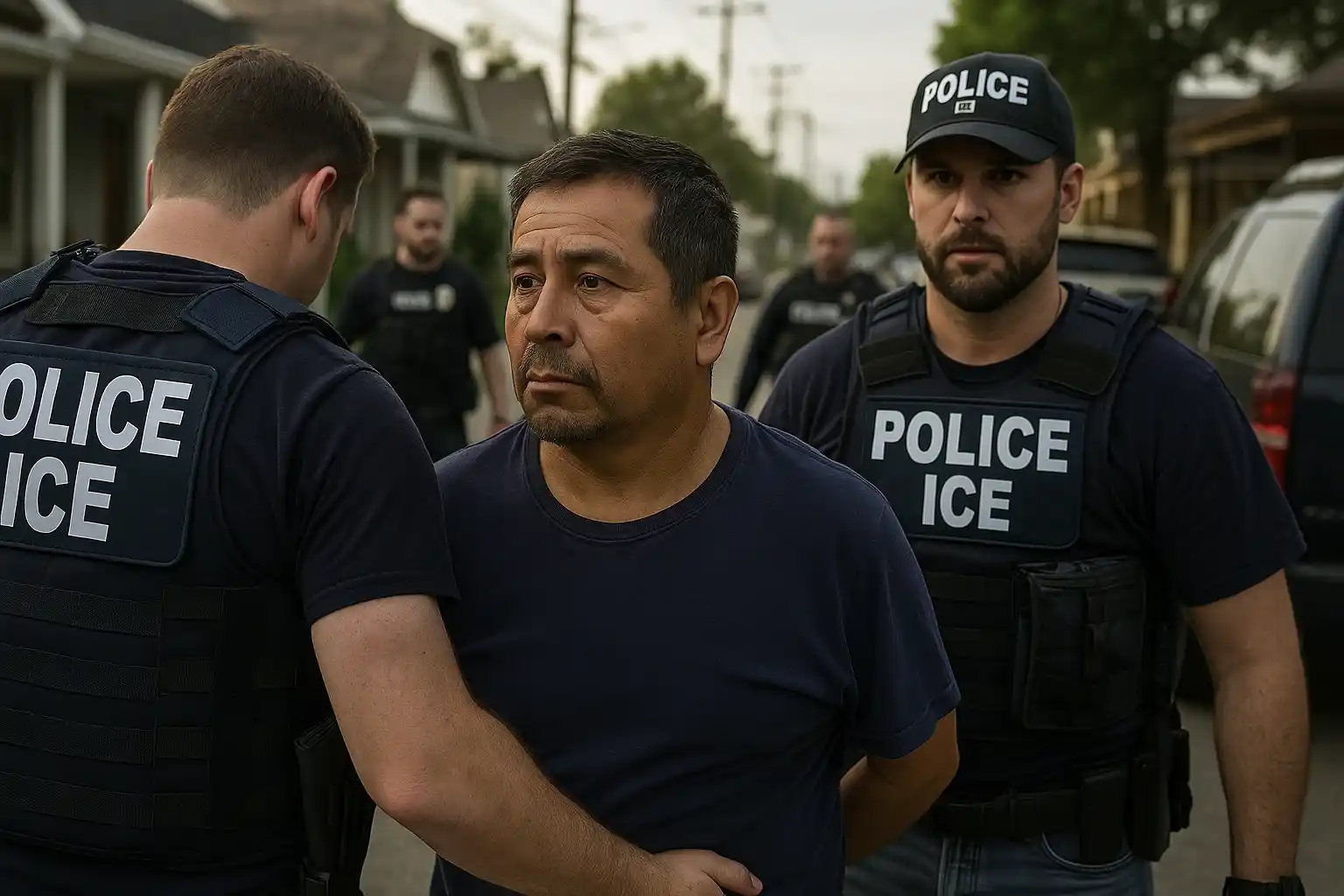As tensions rise across the United States in 2025, many immigrants are asking the same urgent question: “What’s really happening with federal immigration enforcement operations this year?” In this in-depth guide, we break down everything you need to know—from your rights to real-time actions being taken nationwide. If you or someone you know is undocumented or vulnerable, this article could help you stay informed—and safe.
Real Example: In Los Angeles, Maria, a single mother of two, was nearly detained at her children's school drop-off. Thanks to her rights card and emergency plan, she avoided being taken into custody.
What Are ICE Raids and Immigration Crackdowns?
ICE (U.S. Immigration and Customs Enforcement) conducts operations to detain individuals who may be violating immigration laws. These operations, commonly known as “ICE raids,” can take place in homes, workplaces, or even public areas. In 2025, a surge in enforcement—especially in cities like Los Angeles, Houston, Chicago, and Miami—has led to growing fears among immigrant communities.
Immigration crackdowns refer to broader efforts from federal or state governments to enforce immigration laws more aggressively. This may involve:
- Deploying National Guard troops to assist in border control or sanctuary city enforcement
- Expanding the role of local law enforcement in immigration checks
- Fast-tracking deportation proceedings without due legal process
Who Is at Risk in 2025?
While ICE officially targets individuals with criminal records or outstanding deportation orders, there have been increasing reports of non-criminal immigrants being detained, including:
- Visa overstayers
- Refugees whose asylum cases are pending
- DACA recipients with expired protections
- Parents dropping off their children at school
If you fall into any of these categories, it’s vital to know your rights and have an emergency plan in place.
What Actually Happens During an ICE Raid?
Typically, ICE agents arrive early in the morning, sometimes identifying themselves as police officers. They may attempt to enter homes without a proper warrant, relying on individuals to unknowingly grant them permission. Always ask to see a signed judicial warrant before opening the door.
Here’s a basic overview of how a raid might unfold:
- Agents arrive unannounced at a residence or workplace
- They may ask questions, show photos, or claim they’re looking for someone
- If allowed entry, they can detain anyone found to be undocumented
Learn more about State Benefits and Legal Rights to understand what support might still be available.
State-Level Immigration Enforcement Examples
While immigration is federally managed, local enforcement varies by state. Here are examples from across the U.S.:
California
Still a sanctuary state, but several counties cooperate with ICE through jails. This reflects ongoing updates to state immigration laws in 2025.
Texas
Gov. Abbott recently authorized state troopers to detain suspected undocumented migrants—drawing legal challenges. These steps are part of the Texas immigration arrest policy shift this year.
Florida
Passed laws requiring employers to use E-Verify, and allows law enforcement to check immigration status. This highlights Florida's 2025 crackdown on undocumented employment.
New York
Continues to resist ICE presence in schools, hospitals, and courthouses. New York remains a major player in ICE sanctuary policy for 2025.
How to Stay Safe: Practical Tips
- Carry a Know Your Rights card in English and Spanish
- Do not open your door without a signed judicial warrant
- Stay silent—anything you say can be used against you
- Have a family emergency plan and designate a legal contact
- Consult legal aid organizations like RAICES, NILC, or ACLU
If you're facing sudden financial hardship due to deportation risk, you may also be eligible for Emergency Financial Assistance.
Frequently Asked Questions (FAQ)
6. Where Are ICE Raids Happening Most Often This Month?
According to recent reports, the most frequent ICE activity is taking place in Los Angeles, Houston, Miami, and several cities in Arizona and Georgia.
1. Are ICE raids happening more often in 2025?
Yes. Data from DHS shows a 23% increase in raids compared to the same period in 2024.
2. What should I do if ICE comes to my door?
Do not open unless they show a judicial warrant. Stay silent and record the interaction if possible.
3. Can ICE detain me at work or in public?
Yes, but only under specific conditions. They need probable cause or a warrant in most cases.
4. How can I find a lawyer or get legal help?
Visit Immigration Advocates Network to find nonprofit legal help near you.
5. Can I apply for state benefits if I’m undocumented?
Some states offer limited programs—see our guide on Medicaid changes for updates.
What Can You Do Right Now to Stay Safe?
As the U.S. continues to experience immigration policy shifts in 2025, staying informed is not optional—it’s essential. Whether you're an undocumented immigrant, a DACA recipient, or a family member of someone affected, understanding your rights and options could make all the difference.
DollarRelief is here to support you. Bookmark this article, share it with your community, and subscribe to our alerts for up-to-date immigration and legal help in your area.
You are not alone. Thousands of immigrants are educating themselves and protecting their families. Knowledge is your best defense—share it and stay prepared.

